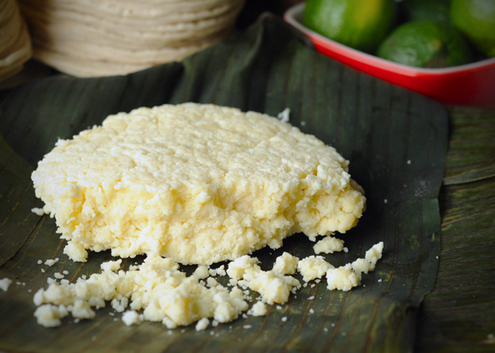
My buddy Adam works at an awesome farm, and through all his deliveries and CSAs and interactions, he comes across all kinds of local goodies. So, sometimes he’ll show up at my door with a box of veggies, some artisinal foodstuffs, or the best – a gallon of fresh, non-homogenized milk. It’s usually stored in some random container, not the packaged stuff the dairy sells in the store. and though I have no idea if it’s raw or not – since it’s illegal in many places, including where I live – it doesn’t taste like it taste when I buy the same product at the market. So, let’s just assume it’s as minimally processed as possible, which is fine by me. It tastes amazing – it’s sorta grassy, but creamy, and basically…tastes like milk should taste.
So, this isn’t the kind of thing you wanna just pour on your cereal, or dunk your cookies. It deserves something special.
Like homemade queso fresco, the ultimate expression of fresh farmer’s cheese. If you don’t have access to special milk, don’t worry; it’s still delicious to make at home, and way less expensive that buying it in the store. Here’s how: Ingredients
- 1 gallon whole or 2% milk, preferably from a local dairy and minimally processed
- 2 cups buttermilk
- 1 cup fresh lemon or lime juice
- Fine ground sea salt
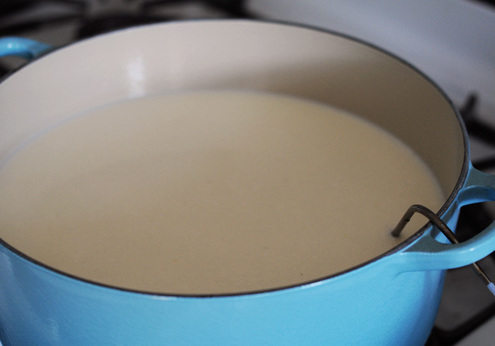
1. Begin culturing the milk by mixing the milk and buttermilk in a large, heavy dutch oven or stock pot, and heating to 75° F. Turn off the heat, cover, and let rest for two to four hours.
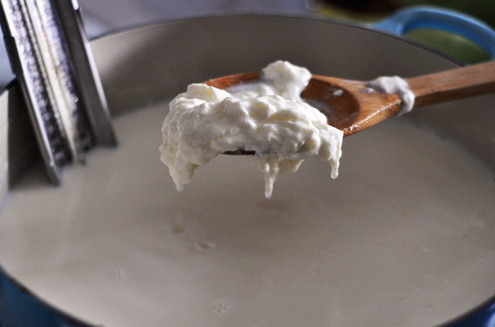
2. Turn the heat to medium, and stir in the citrus juice. Small curds will start to form. Continue stirring every couple of minutes until the whey hits 195° F, about 15-20 minutes. Remove from the heat, and let rest for 3-5 minutes. All the curds should float to the top.
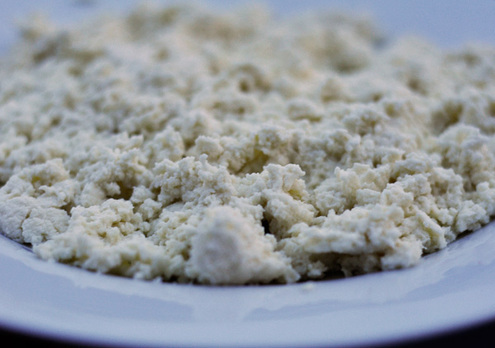
3. Soak a sheet of cheesecloth with water, and set it in a large colander. Ladle the curds into the colander (set it in the sink), then gather the cheese cloth and gently squeeze out all the whey. Spread onto a plate, and season with fine salt, about 1 tsp.
Then, just gather it into a round brick, and cover with plastic wrap. Allow to firm and chill, then enjoy.
This stuff is amazing. You can treat it like paneer for Indian dishes, crumble it over salads, or garnish any Latin influenced dish. Once you learn the technique, you’ll make it often, and think of all sorts of great uses.
Enjoy!

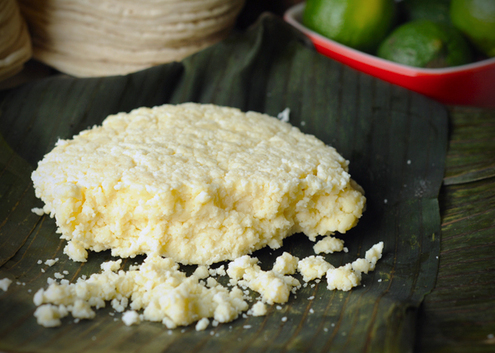







Add comment